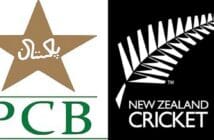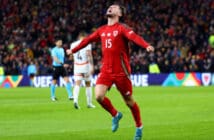As the final whistle blew at the end of the 2014 World Cup Third Place game, the Netherlands National team walked off the field victorious, but also sensing that the match was the swan song of one of the most successful generations of football players in the history of Dutch football.
As talented players like Arjen Robben, Robin van Persie, and Wesley Sneijder were starting to reach their thirties, there was a hope that the next generation of Dutch stars would emerge and take up where the last generation left off. Instead, the past four years have been a nightmare for the National team.
In 2016, they failed to qualify for the European Championship for the first time since 1984 and then two years later, they failed to qualify for the World Cup for the first time in 16 years. The “Total Football” identity of the Netherlands was gone, replaced by a disorganization, mismanaged tactics and a lack of quality to replace the talent that was aging out of the squad.
Since the hiring of Ronald Koeman in February to be the Netherlands manager for the next four years, the Dutch have changed their fortunes, culminating with the team qualifying for a spot in the final four of the inaugural iteration of the League of Nations. Koeman has instilled a new, balanced Netherlands footballing philosophy featuring stout, intelligent defending and incisive attacking play.
The rejuvenation of the national team starts from the back, in the form of center back Virgil van Dijk.
The 27 year old Liverpool star has been a calming presence for a very young roster, most of which is in its early 20s. Van Dijk has been the strong, vocal leader the team has needed. His leadership has helped tie together a youthful but talented group of defenders that includes Daley Blind, Denzel Dumfries, and Matthijs de Ligt into a formidable back four. This has turned into a back four that was able to hold the likes of Belgium, Germany and France to just five total goals in their last five matches. The Netherlands have forged the identity of being a difficult team to score against and this is a vital characteristic for a team that has so much youth on its squad.
Under Koeman, the Dutch have also bought into a more team first philosophy.
The successful Dutch teams of this past decade had plenty of talent but you would be hard pressed to say that team chemistry was a vital factor for their success. Players like Robben, Sneijder and van Persie were some of the best players on the planet but they were all very much individual players, each with a healthy ego. When that generation started to fall off on the pitch, the egos on that team filled in the voids where the talent wasn’t able to fulfill.
Koeman has brought youth and with this youth, a sense of meritocracy. Those who perform, no matter what their pedigree, have a place on the squad. You need to look no further than the case of Ryan Babel, who has been on the fringes of the Dutch national team for the past eight years or so, earning regular spots in the starting eleven based on his form with the national team.
Along with counting on experienced veterans who have earned their ways back into the national team fold, Koeman has also thrust many of his young players into important squad roles and allowing them to grow into those responsibilities. Of the 24 man roster named for the most recent Nations League matches, there were six players aged 21 or younger and many of them like de Ligt and Ajax midfielder Frenkie de Jong have played significant roles for country.
As the Netherlands National team slowly begins to return from its self imposed exile from international competition, there is renewed excitement as to where the national team can go.
International football teams have a certain history of failing gloriously on the world stage, seeking introspection to find their warts and then re-emerging with bright, youthful players playing with a uniform sense of purpose. If you want an example, look no further than the 2018 World Cup Champions, France.
![Prost International [PINT]](https://prostinternational.com/wp-content/uploads/2021/08/PINTtFontLogoRoboto1536x78.jpg)



